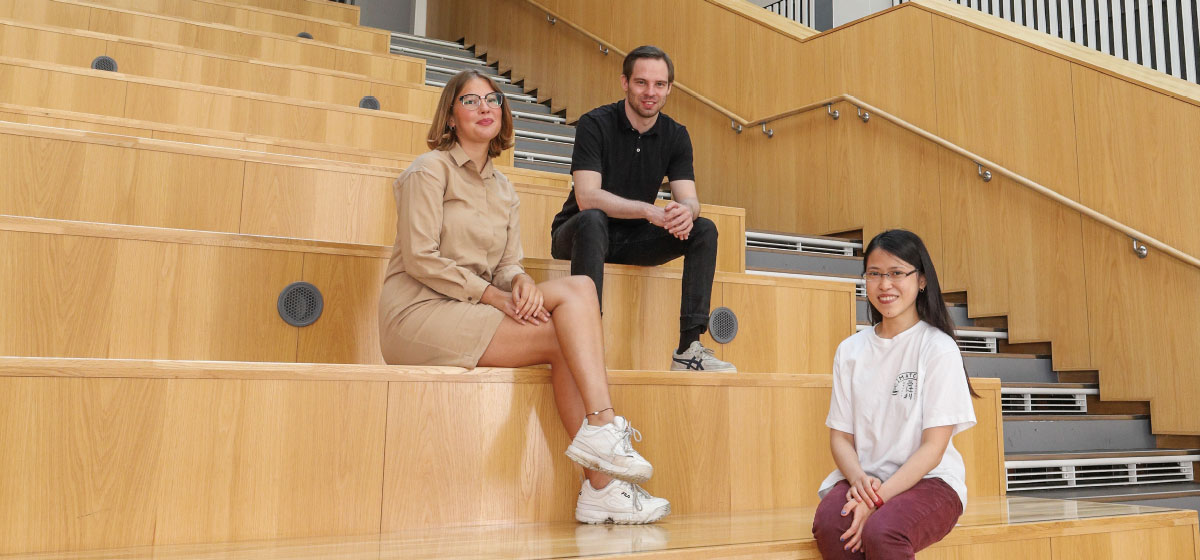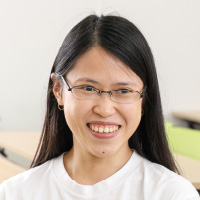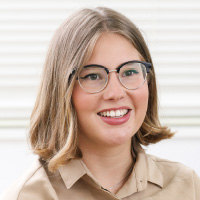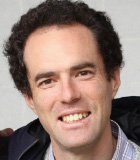The Authentic Japanese Study Abroad Experience: A Unique Curriculum in a Unique Environment
In this issue, we sat down with three international students studying at Kyushu University to talk about all things study abroad—why they chose Japan, what it's like living here, and what international student support is available on Ito Campus.


- Geofanny
-
From Indonesia
School of Agriculture
International Undergraduate Programs (In English)

- Billy
-
From the United Kingdom
Graduate School of Information Science and Electrical Engineering

- Michaela
-
From Sweden
JTW (Japan in Today's World)
Q. What interested you in Japan, and why did you choose to study at Kyushu University?
- Geofanny:
- I came to Japan to study Japanese agriculture, which is more advanced than in my home country of Indonesia. The main reason I chose Kyushu University was because I thought I would get a more hands-on education here than at other universities. I was also attracted to Japan as a country and am very interested in its culture. In Indonesia, we are exposed to Japanese culture at a very young age, so I grew up with Japanese culture in a sense. That may be one reason why I had no second thoughts about coming here, and I even feel at home in a way.
- Billy:
- I came here to conduct research in signal processing and machine learning, a field in which Japan particularly excels. I was also interested in Japan as the world leader in research on “Society 5.0,” an initiative being promoted by the Japanese government to create "a human-centered society that balances economic advancement with the resolution of social problems by a system that highly integrates cyberspace and physical space." I chose Kyushu University not only because it is one of Japan's top universities, but also because it has laboratories that are well suited to my research goals.
- Michaela:
- I'm an avid reader, and one day I discovered the work of Haruki Murakami and was captivated by his writing style and world view. From there, I started reading books and watching videos about Japan, which got me interested in Japanese culture. As I started looking into ways of visiting Japan, I found out about the Kyushu University JTW program (short-term study abroad course).
Q. How have you enjoyed Fukuoka and Kyushu?
- Billy:
- I remembered having a lot of fun with my family when we visited Fukuoka five years ago, so I wasn't really worried when I first came here.
- Michaela:
- I grew up in the countryside, so a city like Tokyo feels a little too big, but Kyushu, and Fukuoka in particular, are the right size for me. I had also heard that Fukuoka had plenty of cultural heritage sites and historical places, and the city has turned out to be just as impressive as I thought it would be.
- Geofanny:
- I lived in Tokyo before, but it was too busy for me. Fukuoka is much more my speed.
Q. What was it about the Kyushu University curriculum that made you want to study here?
- Geofanny:
- IUP (International Undergraduate Program) at Kyushu University is good because it lets you interact with undergraduate students from other faculties, including the humanities. The program is fleshed out and includes classes that help students improve different skills, such as giving presentations. I am learning about bioresources and the environment, but my studies aren't limited to courses inside my biology major. I am also taking a wide range of subjects that include the humanities, economics, and international law, all topics that will be useful in the real world.
- Billy:
- What makes Kyushu University unique in comparison to British universities is its research system. In the UK, I don't think I ever saw a group of faculty and students across different years, both undergraduate and postgraduate, collaborate on research like they do here at Kyushu. I think this system might be unique to Japan. Emphasis is also placed on research presentations, and in my lab, we are encouraged to submit papers. I think it's an excellent way for students to understand how academic publishing works.
- Michaela:
- JTW curriculum is based on the cultural experience of study trips and field trips, which I like because I can interact with both Japanese students and other international students. I majored in anthropology in Sweden, and from that perspective, I think these kinds of interaction and fieldwork are great ways to learn. Rather than just studying in the classroom, we get to go outside the school and experience things like kimono and tea ceremony, which I think is very important for understanding the culture. I think JTW may be the only study abroad program in Japan where you can have such a range of experiences.
- Billy:
- I'm jealous. Why didn't I choose that program?
- All:
- [laugh]
Q. What were your first impressions of Japan and Kyushu University?
- Geofanny:
- I was impressed by the sheer natural beauty around campus, so I like taking walks around the area.
- Billy:
- It was like being inside a Japanese movie. Mountains, bamboo groves, rice fields—you really feel like, “This is Japan!” The extremely wet rainy season, the hot summer, the beautiful autumn, and the cold winter—every season has its surprises. There are four seasons in the UK, too, but they aren't as clearly defined as the four seasons in Japan, and it rains more there.
- Michaela:
- I agree with Billy. I've become much more accustomed to Japan having lived here for a year. I love cycling, and when I go to the sea or the mountains, I'm always fascinated by the natural beauty of Japan. My first experience with Japan's four seasons was autumn in Kyoto. Then there were the cherry blossoms. I'd never experienced the seasons like that before.
Q. What do you think of your classmates and other Japanese students?
- Geofanny:
- I have plenty of classmates from different countries, each with diverse backgrounds and ways of thinking, which has helped me to start viewing things from different perspectives. They all work really hard and are goal-oriented, and everyone works together to help each other. While I think Japanese students can be relatively quiet and shy in open-ended discussions and things like that, they are quite proactive when working together.
- Billy:
- When I first came to Japan, I was pretty nervous that I wouldn't be able to communicate with the people here, but in reality, everyone was really nice, and I realized that I had been worrying for no reason. Whenever something went wrong, I was always surprised—in a good way—by how kind and helpful people were.
- Michaela:
- All of my JTW classmates are international students, and everyone is really laid back. I feel like we can discuss most things, and I learn a lot from them. I like all of my classmates—and professors!—and it really feels like one big family to me. This year, there were initially about 50 of us, but a lot of my classmates had to return home because of COVID-19, so now there are fewer than half of that left. When COVID-19 broke out, our classes moved online and we had to socially distance from each other, but as restrictions have eased, we have been able to relax a little more and the atmosphere is starting to feel more open again. Even under these circumstances, we've bonded as a class, and I am enjoying my time here.
Q. What have you enjoyed about the university's support system for international students?
- Geofanny:
- Kyushu University's support system is fantastic because it matches Japanese student volunteers with international students. These volunteers helped me a lot in my daily life during my first three months in Japan with things like filling out documents and filing forms. And the International Student and Researcher Support Center makes it easy for international students to get help with important things like applying for scholarships.
- Billy:
- The International Student and Researcher Support Center has really been a great help. They're always there to help whenever something comes up, whether it's looking for an apartment, making pension payments, or dealing with insurance. I remember consulting support staff before coming to Japan, and they were always very friendly. Since last year, I've also participated in the Tandem Learning Program, which is a great way to improve your Japanese skills through language exchange with Japanese students who want to study English.
- Michaela:
- Before coming to Kyushu, I had never been outside of Europe and was very nervous when I first came to Japan, but I was relieved to have the support of JTW staff. I agree with Billy that it was nice to have help filling out different forms and arranging medical insurance. Thanks to their help, it was easy to get settled in, and Fukuoka has been a great place to live.
Q. Tell us about your current living arrangements.
- Geofanny:
- I currently live in a dormitory, but I've almost reached the end of my time there and plan to move out soon. All kinds of people live in the dorms, like graduate students and exchange students, which makes it easy to make friends. I often go on walks near my dorm, and with all the hills in the area, I also like to go hiking. There are a lot of interesting insects around the area, and I like taking my camera with me so I can take pictures of them.
- Billy:
- I currently live about ten kilometers away from Ito Campus, closer to central Fukuoka. It's close enough that I can ride my scooter to campus, yet the area is still nice and quiet. My apartment is in a good location, on a hill near a shrine known in Fukuoka for its scenic views. On weekends, I like to rent a car and drive to different places around Kyushu, like the Aso area in Kumamoto Prefecture, which is beautiful. On past trips, I've visited Nagasaki, which was fascinating, and Beppu, famous for its amazing hot springs. There are so many different facets to the culture of Kyushu. Luckily, Japan drives on the left side of the road, the same as in the UK, so I got used to driving in no time at all.
- Michaela:
- I live in a dormitory that's just two minutes from campus, which is very convenient. During my first semester here, I would often go out with friends to eat dinner or go to karaoke. During my second semester, we had to practice social distancing because of COVID-19, so I have been getting out and enjoying the surrounding natural environment. I have also kept busy riding my bicycle to different places, swimming in the sea, exploring the mountains, and making the most of the beautiful nature here.
Q. What are your plans and goals after graduation?
- Geofanny:
- I would like to go on to the master's program if I can get a scholarship. If that doesn't work out, I want to find a job related to what I'm studying. On the international course in my program, we study general education courses in our first and second years. Our third year is when we begin to specialize, and I'm especially interested in choosing agriculture as my area of research.
- Billy:
- After completing my doctoral program, I would like to work in a field that is directly related to my research. I'm interested in working for a company in Japan or abroad, but I know that if I want to work in Japan, I'm going to have to study more Japanese. Coming to Japan, I've gained a unique perspective on working in a different cultural environment, forms of collaboration, and international research, so whatever I do, I want to further my career in an environment where I can make the most of my experiences here.
- Michaela:
- To be honest, I don't have a clear plan yet, and I still have a lot of other things that I want to learn. I'm hoping I can do something that combines all of the things I'm interested in, such as French literature and anthropology. I'm interested in many different places, so I would like to find a job that will allow me to travel.
The international alumni interview

- Daniel Rakove
-
From USA
JTW
Current Position :
Consul for Political and Economic
Affairs, U.S. Consulate Fukuoka.
-
1. Please tell briefly about your work.
I have worked in the U.S. Department of State for 11 years, serving in Bangladesh, Mongolia, South Korea, Washington D.C., and now, Fukuoka, Japan.
-
2. What precisely does your job entail?
I meet with people from all backgrounds across the Kyushu-Yamaguchi region, trying to build ties, and learn from them about pressing issues, such as new developments in science and technology, business, and politics.
Then, I try to report on what I have learned to colleagues in the U.S. government and explain why it is important.
I also try to assist American businesses.
In February, I traveled to Yokohama to help with the evacuation of Americans from the Diamond Princess. -
3. What makes your job worthwhile?
I love learning foreign languages and meeting all sorts of people.
In 2019, I arranged an English-language startup pitch contest, which attracted some incredible entrepreneurs from around Kyushu (including from Kyushu University) and from Busan.
This was the professional highlight of my time here. -
4. What are your career goals?
As a diplomat, I am never sure where I will be in a few years' time.
But wherever I go, I want to break down barriers and build consensus through dialogue. -
5. What are the useful things acquired from your study at Kyushu University?
My time at Kyushu University helped give me the confidence that I could live abroad as a diplomat.
Also, the friendships I made there have really lasted. -
6. Would you give a message to current and future international students at Kyushu University?
Challenge yourself and take chances.